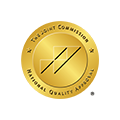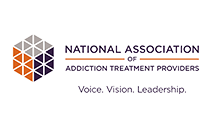Believe in Yourself
Seacrest Recovery Center OH
Providing substance abuse and mental health treatment, utilizing proven therapeutic methods and individualized treatment tailored to your specific needs
Do Drug Rehab Centers Offer Mental Health Counseling?
Substance abuse and mental health disorders often go hand in hand. People dealing with chronic anxiety or depression have a very high likelihood of using drugs or alcohol to alleviate their discomfort, especially when these mental health issues are both undiagnosed and untreated. In order for drug rehab to be effective, it must address addiction at its underlying cause. As such, many drug treatment centers maintain a comprehensive suite of mental health counseling services for meeting the needs of each client.
When both substance use disorder and one or more mental health disorders co-exist, this is known as comorbidity. Many rehab programs provide treatment for comorbidity as a way of ensuring the long-term success of their patients. There are also many people seeking treatment for substance abuse who rely on drugs or alcohol to dull the pain of past trauma, negative behavioral conditioning, and unmanaged stress among other things. Reentering the world post-treatment while lacking a plan for effectively managing any form of pain leaves people incredibly vulnerable to relapse. That’s why the most effective drug and alcohol treatment programs are designed to help patients determine the underlying causes of their addictions. Once this is accomplished, onsite counselors can teach patients new and healthier coping methods, and ensure adequate medical treatment. Mental health counseling is provided in both private and group settings that allow patients to take an introspective approach to understanding their addictions and the illnesses, trauma, and events that have potentially caused them.
What Patients Can Expect From Mental Health Counseling In Drug Rehab
After having successfully detoxed from drugs, patients begin the longer and often more challenging work of determining why they’ve turned to drugs or alcohol in the past. For many people, it can be a relief to discover that drug and alcohol abuse isn’t a sign of insufficient willpower or general weakness of character. Instead, substance abuse often arises from an inability to resolve physical or emotional pain in safe, healthy, and ultimately sustainable ways. People who live with post-traumatic stress disorder, anxiety, and other negative issues and emotions tend to self-treat their pain with substance use until their self-prescribed treatments spiral out of control. Simply stopping drug or alcohol use in these instances is not enough for ensuring lifelong sobriety. There must be a solid strategy in place for maintaining mood balance and good mental health if patients are to avoid relapse post-treatment. Establishing this strategy is the overarching goal of mental health counseling in drug rehab.
In private counseling sessions, people can delve into deeply personal issues and memories. Counselors use these meetings to learn more about the emotions, life events, and possible mental health conditions that have led their patients to use. This is also a time for discussing natural coping mechanisms for dealing with stress, emotional pain, and anxiety so that people have effective, sustainable strategies that they can use upon exiting rehab. These strategies can include deep breathing, journal writing, practicing forgiveness, engaging in continued counseling post-treatment, developing and maintaining reliable support systems, and more.
A mental health counselor may be able to recognize the signs of diagnosable mental health issues. Bipolar disorder, psychotic disorder, post-traumatic stress disorder, and mood disorders are just a few of the many mental health issues that can cause people to self-treat their pain with drug and alcohol use. When onsite counselors are qualified to do so, they can officially diagnose and treat these issues. When they are not, they can refer rehab patients to the appropriate medical doctors for establishing long-term treatment and management programs. For many patients, having mental health issues diagnosed and implementing medical strategies for managing them are the most important steps in the addiction treatment process.
Mental health counselors in rehab additionally host group therapy sessions. These events give patients the chance to bond with one another, share similar experiences, and establish a sense of general camaraderie. In these spaces, people can learn additional strategies for maintaining their sobriety by hearing and learning from the experiences of others. In many rehab centers, counselors and group therapy guides are sometimes recovered addicts themselves. This makes them uniquely qualified to direct these discussions given their ability to empathize with the clients around them.
There are many impressive, secondary benefits that mental health counseling can offer. For instance, group therapy can be a great space for learning how to foster healthy relationships, set personal boundaries, and develop effective communication skills. Counseling in drug rehab is additionally designed to assist people in their goal-setting and long-term life planning. This ensures that everyone has solid plans for housing, employment, and ongoing recovery support upon exiting treatment. If you’re ready get help with your substance abuse and know that mental health counseling is an essential part of this effort, we’re here to help. Call us today at 833-820-2922.
Today Is The Day
You Never Have To Feel This Way Ever Again
One simple call to our caring and compassionate staff, and you can be on your way to a lifetime of freedom and recovery

As Seen On Hulu
Seacrest Recovery Center is The Featured Drug & Alcohol Rehab on Jelly Roll's Save Me Documentary on Hulu Originals
Trusted Treatment Provider
Certified and Accredited Both Locally and Nationwide



Our Clients Believe In Us
And We Believe In Them!
Here Is What They Are Saying
About Seacrest Recovery
Your First Step To Recovery
Our Locations

Columbus OH

Eatontown NJ

Willard OH











